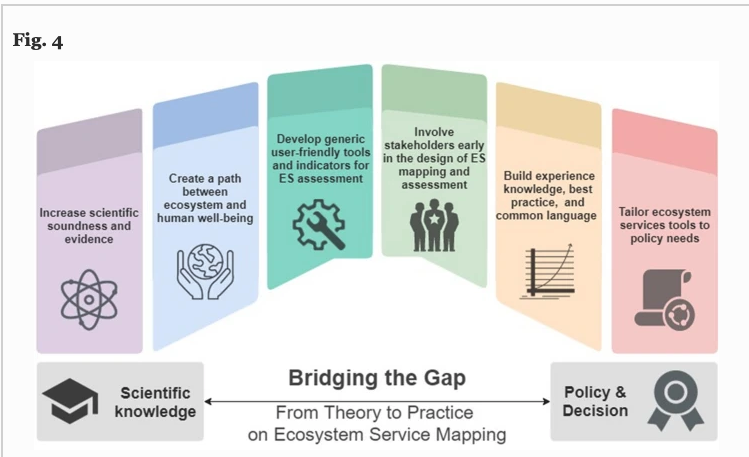Rachel Bitoun, Ewan Trégarot & Rodolphe Devillers

The mapping and assessment of Ecosystem Services (ES) aims at better connecting environmental conservation, economic development, and human well-being. However, 60 years after the development of the ES concept, a persistent gap remains between the production of scientific knowledge on ES and its use in support of policy and management. Here, we report on a systematic review of the scientific literature that helps better understand key challenges and offers potential solutions to bridge this gap. The review considered four criteria: (1) how stakeholders participate to studies; (2) how usable ES maps are for decision-making; (3) what policy recommendations were made; and (4) what research recommendations were made. The analysis of 135 papers published between 2008 and 2020 revealed diverse technical and conceptual challenges that could prevent the effective use of ES concepts and methods outside the academic realm. The main challenges identified in the literature were the uncertainty levels of ES mapping outputs, issues of spatial scales, the understanding of ES interactions, and the need for temporal analysis. Many policies rely on mapped outcomes, creating a window of opportunity for the uptake of ES mapping into policy-making. However, it remains key to involve stakeholders early in the co-design of ES studies and to better understand their preferences and motivation to adopt ES mapping in their practices. The study shows that higher levels of learnability of ES mapping practices, further popularization to foster public awareness, and increased capacity building would facilitate the ES concept uptake into decision and policy-making.
